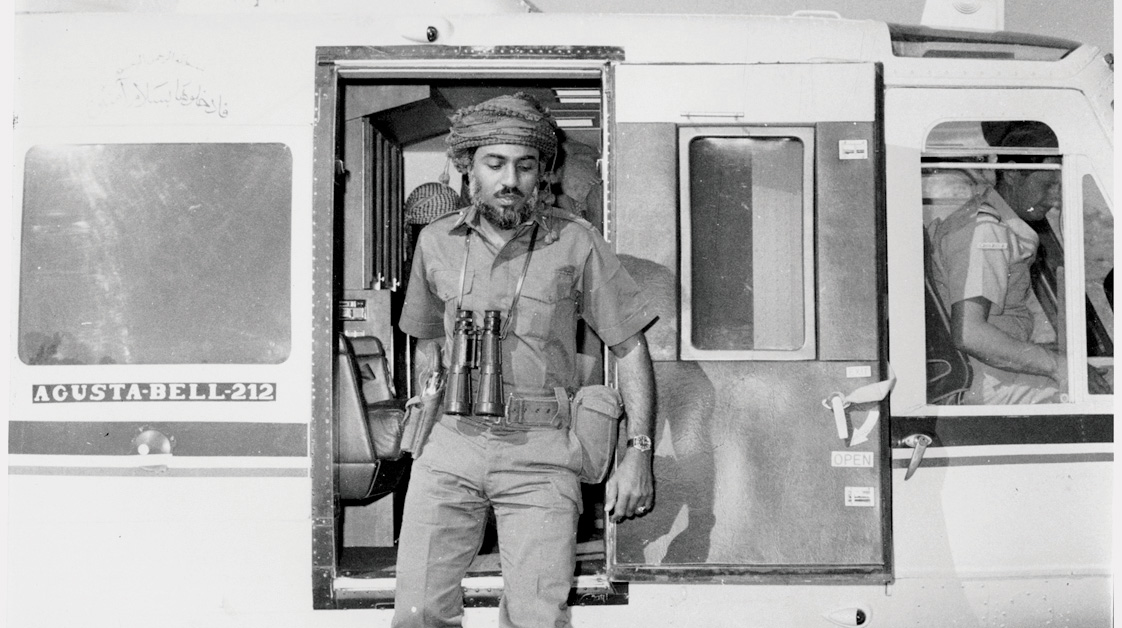

Since the day of blessed renaissance when His Majesty Sultan Qaboos took to office, a glorious chapter opened in the history of Oman. This has been an era marked with development, progress and prosperity in all fields.
Forty-nine years have passed and the person who set the wheel of development rolling has now returned to the soil of the country that he reshaped with his blood and sweat, for his final rest.
His Majesty Sultan Qaboos, whose name is synonymous with modern Oman, has led the country to glory since July 23, 1970. “I promise to proceed forth with in the process of creating a modern government. My first act will be the immediate abolition of all the unnecessary restrictions on your lives and activities. My people, I will proceed as quickly as possible to transform your life into a prosperous one with a bright future,” he said to his people.
Since the first day, His Majesty Sultan Qaboos was keen on ensuring that the Omani citizen is the maker of the development, its foundation and guardian, and to be the first beneficiary. The citizens have been the focus of all the national development efforts, plans and programmes.
Today this pride nation holds the status as a peaceful and diplomatic state while its citizens and residents enjoy a better life.
Prudent utilisation of oil revenues to develop social and physical infrastructure — with substantial investments undertaken in health, transportation, electric power, water supply and communications — contributed to a rapid transformation of Oman’s economic foundation and structure.
The government of Oman pursued a clear socio-economic path articulated in consecutive five-year development plans that revolved around fundamental long-term objectives, most prominent of which are the creation of new sources of national income.
Also included in the development plans have been focus on human resources to enable them to fully assume their role in advancing the national economy, the continuous building of the components of a free economy underpinned by private sector activities on the basis of free competition, and the attention to water resources as a vital element indispensable for thriving and uninterrupted economic activity and environment preservation.
During the period from 1970-1995, the Sultanate successfully laid down the foundations of a socio-economic shift and embarked on a journey towards future horizons, continuous self-sustaining growth and interaction with the outside world.
In 1995, the economic future vision Oman 2020 was developed, setting out a clear and well-defined path towards the 21st century under which the Omani economy can shift from an economy that depends on government initiative and spending, oil resources, and an expatriate workforce as the main drivers of economic activities, to an economy that relies on private initiatives, a national workforce, and renewable resources in order to achieve sustainable development.
First announced in 1995, Oman Vision 2020 is an ambitious plan designed to steer the Sultanate towards a more sustainable and diversified economy by using oil revenues to boost investments in health, education and social services, better train citizens, and raise living standards across the board.
To do so, the government is working hard to boost output in 10 key sectors: manufacturing, transport and logistic services, tourism, fisheries and mining, ICT, education, health, agriculture and environment. To help do so, the government is working hard to boost Omanisation, or the rate at which Omanis rather than foreigners are employed throughout the economy, as much as possible.
Shortly after the United Nations adopted the 2030 Agenda for Sustainable Development in September 2015, the Sultanate devised the 9th Five-Year Plan (2016-2020) which underscores Oman’s determination to keep pace with evolving international development instruments, particularly the 2030 Agenda for Sustainable Development.
The principal aim of the plan is to deliver a shift away from an economy that depends on a sole main resource, i.e. oil, towards a diversified economy to which various promising sectors are contributing, with a view to minimising the consequences of external shocks resulting from oil price fluctuations in the global markets.
During the last four years of the 9th Plan, Oman made significant progress towards the Sustainable Development Goals (SDGs). Subsequently, His Majesty the Sultan ordered the preparation of Oman Vision 2040 that would serve as a fundamental guide and reference to the Sultanate in any planning exercise during the next two decades. Oman Vision 2040 seeks to elevate the Sultanate to the position of an advanced nations by focusing on three key themes: the individual and society, economy and development and governance and institutional performance.
Promoting the role of the private sector is one of the main pillars of the 9th Plan. An array of policies, programmes and trends have been brought into effect, including enhancing the business environment and investment climate, improving Oman’s ranking in international indices, promoting investment between the public and private sectors, and activating the privatisation programme and development schemes for small and medium enterprises.
The 10th Five-Year Plan is the first implementation plan of Oman Vision 2040, and will determine the priority aims that the country will be working on during the next five years. One of the most important features of the methodology of setting the 10th Five-Year Plan is the first phase of implementation for Oman Vision 2040.
The late Sultan also ensured that Oman has its own experience in the field of Shura with citizens are given a role in national decision-making. This has strengthened the development process, contributing to the establishment of a state of institutions and law, and strengthened the values of partnership and the multiplicity of opinions in the context of ensuring the achievement of national interest.
Oman Observer is now on the WhatsApp channel. Click here



